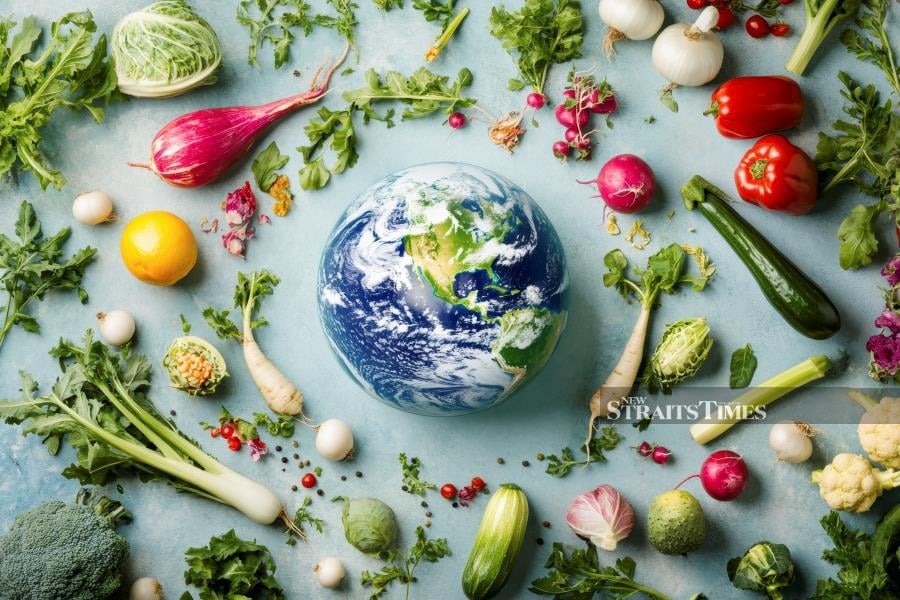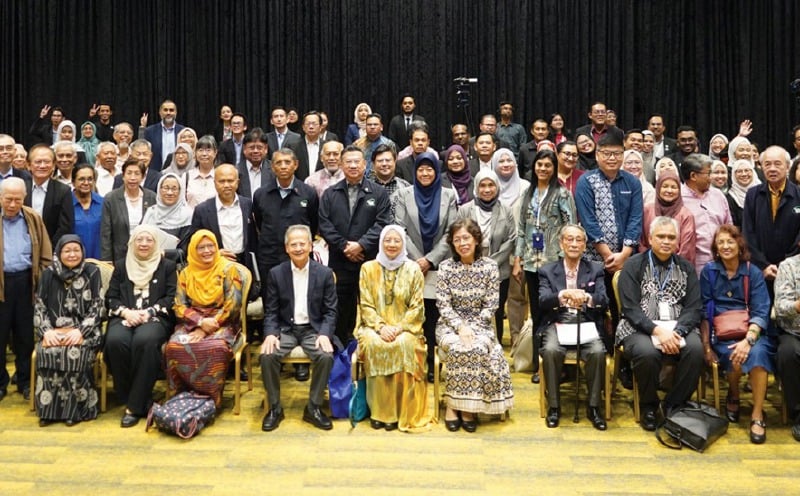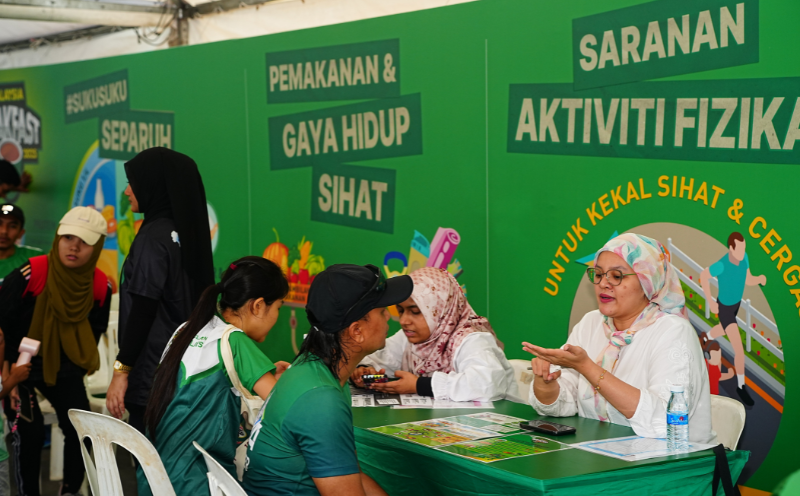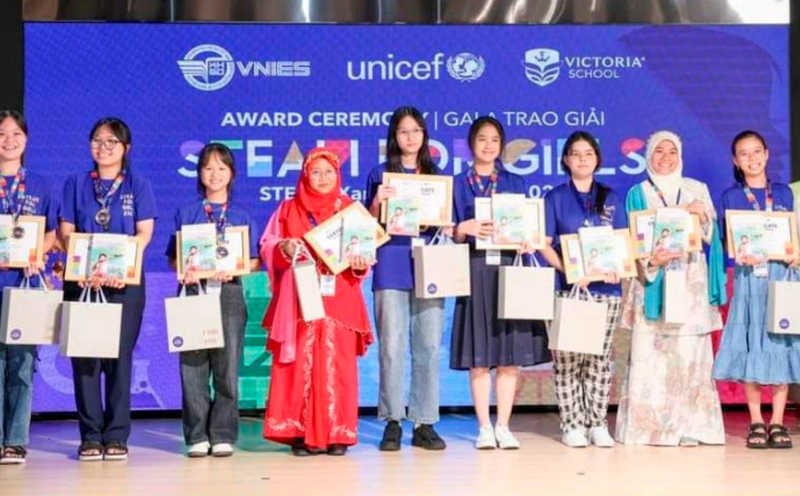AGRICULTURE remains both the backbone of Malaysia's economy and a critical element of our national identity. However, as the climate crisis escalates, this vital sector faces mounting threats that jeopardise our ability to feed the nation.
The unpredictable nature of climate factors, from rising temperatures to erratic rainfall, floods and droughts, are threatening food production and distribution. These accelerating changes underscores the urgent need for resilient and sustainable food systems.
The recent floods last month had caused vegetable prices to skyrocket by 50 to 80 per cent, after more than 100 hectares of farmland in five states (Johor, Melaka, Perak, Kelantan and Terengganu) were destroyed.
The flooding has significantly reduced supply in the market, causing prices to rise sharply. Common vegetables like sawi, bayam and kangkung now cost RM8.00 per kilogramme, up from RM3.50 previously.
Similarly, tomato and lady's finger prices have nearly doubled, reaching RM8.00 and RM9.50 per kilogramme, up from RM4.00 and RM6.50, respectively. Red peppers have seen the most dramatic increase, now selling for RM22.00 per kilogramme, up from RM14.00 prior to the floods.
When food prices rise, they directly affect lower-income households, forcing families to spend a larger portion of their income on food, often at the expense of other essential needs, such as healthcare and education.
Nutritious items like fresh vegetables, fruits and protein sources become increasingly unaffordable, leading to dietary deficiencies, malnutrition and long-term health issues, which are already prevalent in Malaysia.
The urgency of addressing food security is further highlighted by Malaysia's 2.6 per cent year-on-year increase in food prices up to last November, the highest increase since December 2023.
Higher costs for food away from home (4.1 per cent), vegetables (2.7 per cent) and meat (1.4 per cent) all played a significant role. These statistics are more than just economic indicators; they reveal underlying systemic vulnerabilities.
Extreme weather events, such as the devastating floods and the subsequent droughts, have disrupted agricultural cycles, reduced yields and stressed supply chains.
RESILIENT SYSTEM NEEDED

Our country's food security is deeply intertwined with climate change and systemic inefficiencies. Existing strategies, while helpful, often fall short of a resilient and sustainable food system. Addressing these challenges requires a multi-pronged strategy that integrates technology, policy and community engagement.
Despite the recurring monsoons at year-end, long-term solutions to prepare agricultural supplies remain inadequate. Farmers remain vulnerable to extreme weather events, leading to frequent yield losses and supply disruptions.
Local food production, while receiving attention, has yet to achieve adequate self-sufficiency levels for key staples, intensifying food insecurity during crises. This issue necessitates a shift from short-term fixes, such as reliance on imported supplies, toward a more sustainable and resilient agri-food system.
What if we invested more in local innovations? Imagine flood-tolerant padi being grown right here, ensuring that a rice harvest is available after rainy seasons.
For example, geographical areas identified as flood-prone should develop promising innovations and climate-resilient practices to mitigate risks and ensure that modern technology can yield to its full capacity in the climate crisis.
To increase the sustainability and resilience of agri-food systems, there is a clear necessity to shift the focus of technology from efficient food production to the facilitation of value chain development.
By collaborating with research institutions, we can bring these ideas to life and protect our farmers.
Smallholder farmers constitute a significant portion of Malaysia's agricultural workforce, but often lack access to critical resources such as modern technology, financial credit and training. This limits their ability to modernise practices or adapt to climate challenges.
Tools such as satellite imaging, precision agriculture tools and early warning systems can optimise resource use and enhance preparedness for adverse weather. These technologies aren't just futuristic, they're game-changers that can attract younger generations to farming.
Technologies like artificial intelligence (AI)-driven analytics, robotics and drone systems can automate labour-intensive tasks, improving efficiency and reducing dependency on unpredictable weather patterns.
Government subsidies, affordable credit and capacity-building programmes are necessary to encourage smallholder farmers and young agri-preneurs to adopt these technologies more widely. Cooperative models, which pool resources and encourage knowledge-sharing among farmers, can further bolster resilience at the grassroots level.
Empowering local communities through education and collaboration is vital for fostering resilience. Urban farming, from rooftop gardens to backyard vegetable patches, is an excellent way to grow food close to home.
Not only does this reduce pressure on commercial supply chains, but it also helps families save money and eat healthier. Imagine neighbourhoods coming together to create community gardens, sharing the produce and fostering a spirit of self-reliance. As consumers, choosing locally produced and seasonal foods, and reducing food waste are other simple, yet impactful steps to support farmers and promote sustainability.
CALL TO ACTION
As Malaysia stands at a critical juncture in addressing climate change and food insecurity, the stakes are clear. Failure to act risks unravelling decades of economic and social progress, but it also presents an opportunity to redefine our food systems into a model of resilience and sustainability.
The road ahead demands collaboration across sectors, from policymakers and scientists, to farmers and consumers. By embracing innovation and fostering collective action, we can ensure a future where food security isn't a privilege but a guarantee for all.
It's time to sow the seeds of resilience, nurture collaboration and grow a future where every Malaysian has access to safe, nutritious and affordable food.
The writer is a senior lecturer at Taylor's Culinary Institute, Faculty of Social Sciences and Leisure Management at Taylor's University.
Pick your healthy foods only with this foodpanda coupon code










